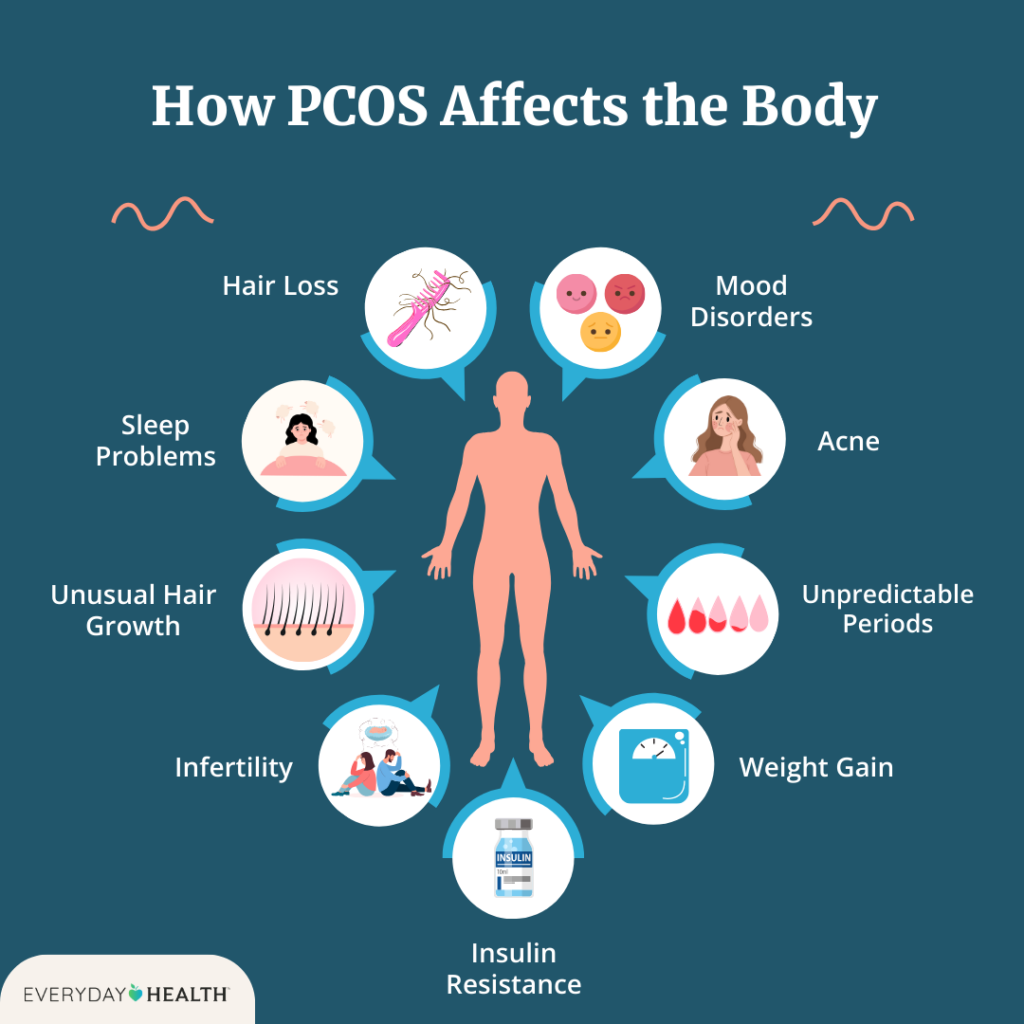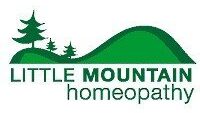
Although the exact cause of PCOS is unknown, polycystic ovary syndrome is a hormonal problem usually characterized by irregular periods, high levels of androgens (male hormones) as well as the development of multiple cysts in the ovaries.
Contact the clinic to book an appointment for homeopathic treatment of PCOS.
Effects of homeopathic medicines in poly cystic ovary syndrome (PCOS)
2nd International Conference and Exhibition on Traditional & Alternative Medicine
Deepak Sharma
ScientificTracks Abstracts: Altern Integ Med
DOI: 10.4172/2327-5162.S1.006
Abstract
The aim of this study is to show the efficacy of homeopathic medicines in PCOS which is remaining untreated by conventional medicine. A clinical study was carried out from 2011 to March 2014 on 132 cases of PCOS with age group from 14 to 35 years from different cities of India. Study shows 91(68.9%) cases were successfully treated 23 (17.4%) cases are under observation with improvement, 14 (10.6%)cases were not supportive due to a hurry or impatience to get pregnant and 04 (3.1%) cases were very difficult to treat. In these cases we referred to higher centers due to congenital abnormality or complete absence of hormones. Commonly used homeopathic medicines are Apis mellifica, Aurum muraticum natronatum, Bryonia alba, Calcarea carbonica, Lac caninum, Lachesis, Natrum muraticum, Oophorinum, Sepia officinalis and Sulphur. The potencies were used from 30C to 1000C in single doses depending on the condition of the patient. During this study we found a very significant symptom of dreams of snakes, which is also increasing day by day and Homeopathy is the only science that can treat these types of symptoms. This proved that Homeopathy is the only science which can treat the illness with mental symptoms of the patient. Today, the world is still pondering over the cure for PCOS because it is increasing day by day and is the major cause of infertility. The cases show us the significance and success of Homeopathic treatment for PCOS.
Abstract
Background and Objectives: This study was conducted with the primary objective of evaluating efficacy of Homoeopathy in establishing the menstrual regularity with improvement in either ultrasonological findings or hirsutism/acne. The quality of life was also assessed using polycystic ovary syndrome questionnaire (PCOSQ). Materials and Methods: A single-blind, randomised, placebo-controlled pilot study was conducted from February 2014 to May 2015 at two research centres. The cases fulfilling the eligibility criteria were enrolled (n = 60) and randomised to either the homoeopathic intervention (HI) (n = 30) or identical placebo (P) (n = 30) with uniform lifestyle modification (LSM) for 6 months. Results: The menstrual regularity with improvement in other signs/symptoms was observed in 60% of the cases (n = 18) in HI + LSM group and none (n = 0) in control group (P = 0.001). Statistically significant difference (P = 0.016) was observed in reduction of intermenstrual duration (from 76.1 ± 37.7 to 46.6 ± 38.7 days) in HI + LSM in comparison to placebo + LSM group (from 93.0 ± 65.2 to 93.9 ± 96.2 days). In PCOSQ, also, significant improvement was observed in HI group in domains of weight, fertility, emotions and menstrual problems (P < 0.05) with no difference in body hair (P = 0.708). No change was observed in respect of improvement in the ultrasound findings. Pulsatilla was the most frequently indicated medicine (n = 12, 40%). Conclusion: HI along with LSM has shown promising outcome; further comparative study with standard conventional treatment on adequate sample size is desirable.
Efficacy of two traditionally used potentized homeopathic medicines, Calcarea carbonica and Lycopodium clavatum, used for treating PCOS patients: I. Effects on certain important external guiding symptomsDebarsi Das , Indira Das , Jayeeta Das , Saroj Kumar Kayal , Anisur Rahman Khuda-BukhshTANG [HUMANITAS MEDICINE]. 2016. Feb, 6(1): 6-6DOI : http://dx.doi.org/10.5667/tang.2015.0027
Abstract
Polycystic ovary syndrome (PCOS) has now become more common in occurrence in women of reproductive age, particularly in urban and semi-urban population in India. So there is a need to investigate this phenomenon taking into consideration various aspects including possible treatment method to ameliorate/eradicate this syndrome, which has far reaching socio-economic impact and consequences, in view of infertility and irregular menstrual cycles frequently associated with this syndrome. Homeopathy is a branch of traditional alternative medicine which is gaining popularity in India and some other developing countries, as also in some of the developed countries in Europe. With this background scenario, we have made an attempt to treat cases of confirmed PCOS and tried to compare the relative efficacy of two potentized homeopathic drugs, namely, Lycopodium clavatum (Lyco) and Calcarea carbonica (Calc), most frequently used by homeopathic practitioners, selecting different potencies of the drugs, depending on condition/guiding symptom(s) of the patients. While the main focus was pointed on total/partial removal of cysts, data pertaining to different PCOS associated symptoms were also compared for the sake of learning if the two drugs had differential effects on these symptoms also. The study parameters in this investigation included: regularity/irregularity of menstrual cycle, presence/absence of acne, hirsutism, male type alopecia, acanthosis nigricans, body/mass index (BMI) and waist-hip ratio. Overall results provided clear evidences that both these homeopathic drugs had great ameliorating effects on PCOS, although each drug had a little different effect in respect of the individual parameters of this study.
Abstract
Background and Objectives Polycystic ovary syndrome (PCOS) is a common heterogeneous endocrine disorder in women of reproductive age. It is characterized by various clinical presentations such as ovulatory dysfunction, polycystic ovaries, and hyperandrogenism. Considering the side effects associated with conventional treatment and the patients who fail to respond to these measures, there is a demand for a complementary therapy that would alleviate symptoms of PCOS without side effects. Homeopathy is a complementary system of medicine that has been successfully used in different disease conditions, including PCOS. A case series of PCOS is hereby presented, to demonstrate some positive results of individualized homeopathic treatment.
Methods Seven cases of young women with PCOS were treated with individualized homeopathic medicines. Each case was followed up with clinical and ultrasonographic evidence and was reported according to the criteria set out in the HOM-CASE guidelines. The assessment of causal attribution of homeopathic treatment effect was carried out using the Modified Naranjo Criteria.
Results Marked improvement was observed in all seven cases of PCOS. The irregular menstrual cycles and other associated symptoms became normal, along with a resolution of cysts in ovaries as evidenced by ultrasonography. All cases improved within 4 to 12 months of treatment. The Modified Naranjo Criteria total score was +9/13 for each case, which indicates a positive causal attribution of homeopathy in relieving the symptoms of PCOS.
Conclusion This case series suggests a significant role of individualized homeopathic medicines in PCOS by regularizing the menstrual cycle along with the resolution of cysts and associated symptoms.
Homeopathy brings a Young Teenage Girl out of Polycystic Ovary Syndrome (PCOS) by Dr. Amita Arora
A teenage girl consulted us with complaints of scanty periods. Investigations revealed a diagnosis of PCOS, one of the commonest and most distressing conditions affecting teenagers today. With correct and regular homeopathic treatment, her menses got back on track, and the cysts disappeared.
A 15 year old girl was suffering from missed periods and scanty bleeding for the last 5 months. Ultrasonography confirmed her diagnosis of Polycystic Ovary Syndrome, wherein multiple and small balloon-like swellings are seen on the ovaries.
On detailed case taking, the girl revealed that she had a sensitive nature and was quite lazy and sluggish in her activities. She led a sedentary lifestyle. Though she was slow she was intelligent in studies.
Graphites was prescribed based on her case presentation, characteristics and symptoms.
She got her menses 15 days after the treatment began and she reported saying her flow was better than before. On regular follow-ups, she showed gradual improvement in her overall well-being as well. Her treatment continued for more than 2 years, and today, there are no cysts in her ovaries.
Case study by Mollie Hunton
Mrs KJ, aged 31, came to see me because she had had PCOS for ten years and during her first pregnancy she had a large ovarian cyst which could not be operated on and she had to have a caesarean section. She was now pregnant for the second time and wanted to try and deliver normally.
Her PCOS was diagnosed at the age of 21 when she was experiencing irregular bleeding. At the time she was working on a ship which she found very stressful. She developed severe acne which was treated by a dermatologist with Minocin, a strong antibiotic. After this she developed irregular bleeding and a scan showed ovarian cysts. She was put onto oestrogen patches. She then conceived naturally, but developed the large cyst. The cyst was dealt with during the caesarean.
Eventually she wanted to conceive again, but was unable to. She was referred back to the gynaecologist and was due to have a laparoscopy when she became pregnant.
By nature she was a home person. On board ship she had been very homesick. She was very moody and often burst into tears. She hated stuffy atmospheres and always slept with the window open. She hated to be cold. Despite what she thought about her acne scars, she was a very attractive person with blond hair and blue eyes.
I prescribed Pulsatilla 200c, three tablets to be taken in one day once a month whilst pregnant. She did not develop any cysts and went on to deliver normally.

